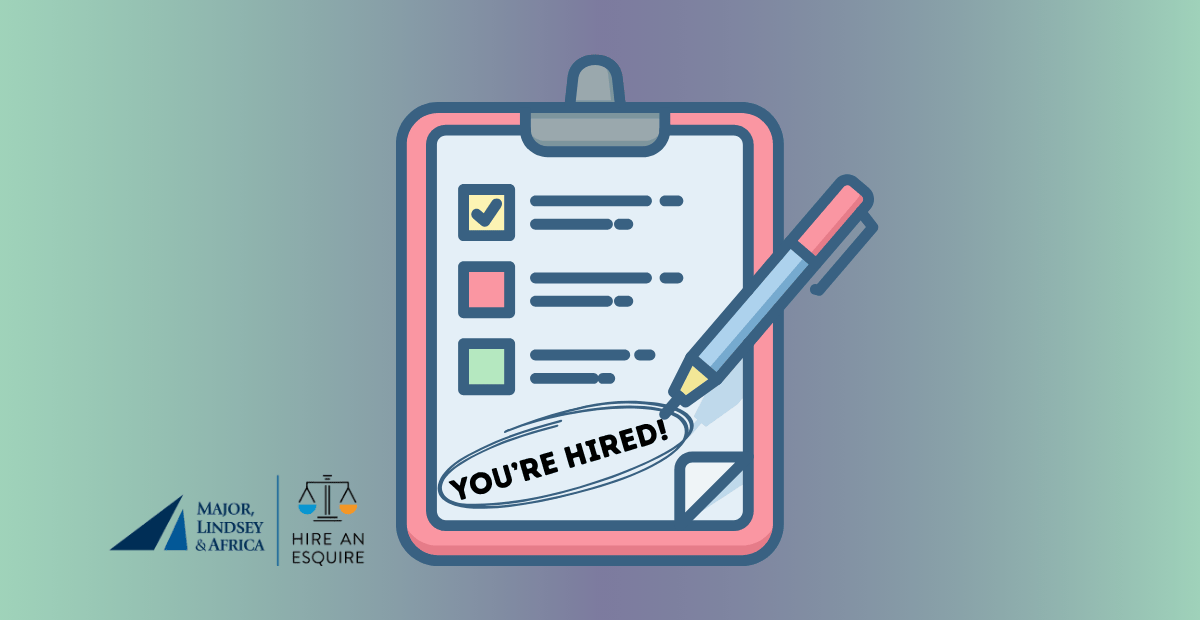From Freelance to Full-Time: How to Transition Back into Permanent Legal Roles
July 31, 2025
In recent years, contract work has gone from niche to mainstream. And just as many in the legal profession in “permanent jobs” reach a point in their professional or personal lives where contract work makes sense, some legal freelancers may find the reverse. The good news is that now, more than ever, employers understand that careers are fluid and are open to hiring those transitioning out of contract roles into permanent roles and vice versa.
So, if you’ve been freelancing for a while and have decided it’s time for a permanent role and feel like you need a refresher on how to go about this, we’ve got you covered! We’ve asked our top recruiter here at Hire an Esquire to weigh in on the best practices that will make your career transition go as smoothly as possible and help you land the job.
-
Accurately record your work history. If you’ve been doing contract work for the past few years, your resume will reflect that, and it might make you appear "jumpy”. Jumping from job to job can be a red flag for employers looking to hire someone for a permanent position.
Our recruiter's advice: Make sure that you’re noting on your resume which roles were short-term contract positions and be sure to disclose that during the interview process as well! Always have “(Contract Position)” next to the job title or company name on your resume.
-
Adjust your expectations. The interview and hiring process for a permanent position is different than the process for a contract one. It tends to be slower and more thorough. Employers want to be sure that they’re hiring the right person to join their team full-time.
Our recruiter’s advice: Be patient with hiring managers and recruiters. It’s okay to check in on your status, but don’t be too pushy and keep things respectful. Be sure to communicate every step of the way through the hiring process. This is a time-consuming process for both you and the employer, and it’s best to let them know of any changes in your interest in the role sooner rather than later.
-
Explain your career intentions. Because you’ve primarily worked on contract roles in recent years, employers are going to want to know why you’re looking to shift back to a more traditional role and if you have the ability to last in a long-term position.
Our recruiter’s advice: Be ready to explain your motivations for why you are looking for permanent work. Explain your reasoning in a personal statement at the top of your resume or in a cover letter.
-
Reacquaint yourself with certain qualities. It may seem obvious, but being prepared for the hiring process can make or break your chances at landing a role. Employers are hoping to bring you onto their team permanently, and certain qualities are an indicator of whether you’re up for the job or not.
Our recruiter’s advice:
-
Go back to the basics. Have a presentable, clean, and well-formatted resume.
-
Proofread. This sounds simple, but this is often an overlooked step. Spelling errors reflect the work you’d be doing for your future employer and can be what keeps you from even getting an interview.
-
Ace the interview. Dress well, show up early, do your research on the person who is interviewing you (as well as their company or firm), and send thank you emails after.
-
During the interview, avoid bad-mouthing your current or past employers. This is a poor reflection of you and a major red flag for employers and recruiters.
-
Be yourself, and don't shy away from opportunities just because you don’t tick every box. From what we’ve seen, employers hiring contract workers are more focused on the specific skillset they need to get the project they’re hiring you for completed. Meanwhile, employers hiring permanent workers to join their teams are more lenient on skillset and willing to train if the culture fit is there (especially because there’s the time to do so).
Our recruiter’s advice: Be personable in your interviews, because that counts just as much as your experience. And, if you don’t have the specific experience in a practice or expertise area, make sure you are able to communicate the skills that you do have and how you can carry those skills over to the role you’re applying for.
And remember, your life and career are fluid. The average worker will have multiple contract and permanent jobs throughout their career. You can always go back to freelancing if that’s what you want or makes sense for your personal or professional goals in the future.